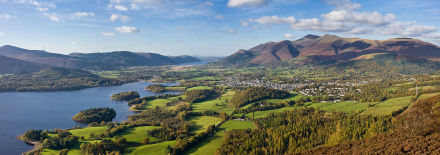The first fringe of the LabourList tent Conference 2014 was hosted by Labour: Coast & Country this sunny lunchtime. Over 100 delegates, including local activists, PPCs, MPs, and MEPs gathered to consider the question of how the Party’s policy review will deliver One Nation for coast and country.

Hywel Lloyd, one of the founding members of Labour: Coast & Country opened proceedings with a reminder to everyone that LCC had been established to represent the voice of all those who lived and worked in coastal and country communities. This happens to be more people than the population of London (9.3m to 8.3m), and with almost 600,000 people lived in sparse areas, collectively they would be the UK’s seventh largest city. To govern well AND to win Labour had to hear and respond to these voices as much as it might to those of its city heartlands.
Maria Eagle, the Party’s Shadow Secretary of State for Defra picked up the batton, describing the importance to her and her role of ‘non-city Britain’, the need to have a sharp elbows to help ensure her colleagues properly rural proof their work (ably assisted by Huw Irranca-Davies). As she put it the fundamental problem faced by rural Britain was the Tory problem! At the end of the day, she said, we have to replace them if the people of coast and country are to have any chance of better wages, opportunities for training, access to services and a better deal on transport and connectivity . . . (see here for her full speech).
Jim Knight, previously a Schools Minister and Lords Defra Shadow, and a founder of LCC spoke of the importance of the big picture, what sort of economy are we trying or expecting to create in post industrial Britain – get that right and we could see a rebalancing of the economy and a much better deal for many of the communities of coast and country, based as they are on the periphery and dealing with degrees of isolation, lower density and distance that city dweller might struggle to understand. How do we think the emerging trends for sharing and coproduction would play out in these areas? And perhaps broadband deployment should be the responsibility of DfT as part of their role in ensuring connectivity for all the communities of Britain.
Finally while conference duties as Chair had, ultimately, prevented Angela Eagle attending she did send a message of support “I’m terribly sorry I can’t be with you . . . As Chair of the National Policy Forum I’ve worked to ensure that we reach out beyond Westminster . . . Ed Miliband’s commitment at the NPF to produce a rural manifesto is yet another indication that the Labour Party is the only true national party!“ which was relayed to the audience.
The Q&A session covered a huge array of issues, including education and access to FE: what housing would be built where: how CAP could really help country communities: how rural mental health services were often the Cinderella to urban mental health services let alone compared to services for physical health; how we had to ensure better wages and work was available, with better terms conditions; how the cost and lack of public transport would be the death knell of many communities and see the departure of too many young people . . . to capture just a few. The panel was clear that in some areas the party had worked up good solutions, e.g. early distribution of the winter fuel allowance to off-grid pensions, while in others more work was required.
All reinforced the idea that policies for the coast and country are every department’s business.
Finally the panel closed requesting delegates asked the same questions at every fringe they were to attend, that we work together to create a Coast & Country Manifesto that would help the party win, and that winning ‘the politics of the periphery’ could be the difference between being the largest party or a party with a majority to govern.
To coin a phrase ‘we are all in it together and we will be better together’.




More from LabourList
‘Reconciliation is not weakness. It is leadership’
‘Press regulation is the simplest test of whether Starmer will govern with integrity’
‘Winning was the easy part. Governing requires a different politics’